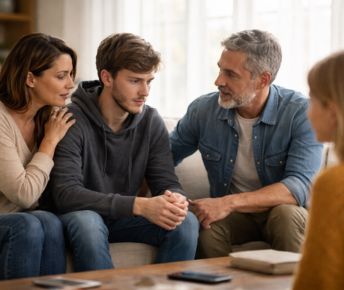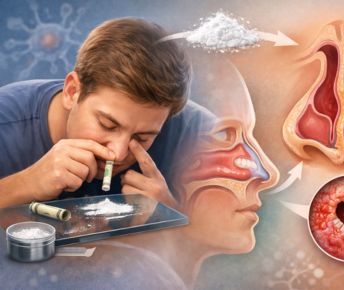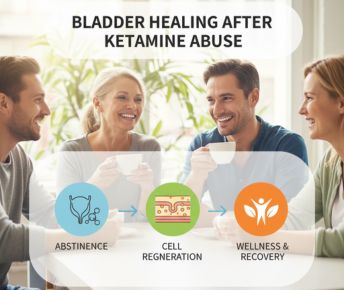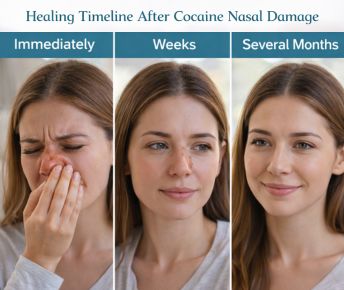Recovery isn’t a straight line. It's a dance. Two steps forward, one step back, sometimes a spin into your old patterns and a stumble out again. And in the center of that dance is the risk of relapse.
Whether you're fighting the grip of alcohol relapse((GET HELP) ) or the sneaky return of a drug relapse, the fear of slipping up can be paralyzing. But here’s the thing: relapse isn’t failure. It’s information. It’s a signal. And most importantly, it’s preventable when you have the right tools in place.
So let’s get into real-world, no-fluff relapse prevention strategies that don’t just say “stay strong” but actually help you stay strong.
First, What Exactly is a Relapse?
In clinical terms, a relapse is the return to substance use after a period of abstinence. But let’s humanize that: it’s a moment when the pain, pressure, or temptation outweighs your coping skills.
Relapse doesn’t happen out of nowhere. It brews—quietly. It starts with a thought, a fantasy, a feeling. You don’t wake up and say, “Today’s the day I lose everything.” It’s slower. More insidious.
That’s why relapse prevention therapy focuses not only on stopping behavior but understanding the causes of relapse: emotional stress, unresolved trauma, loneliness, overconfidence, or even boredom.
Why Do People Relapse?
Because they’re human.
They get overwhelmed. They see their old crew partying. They believe they’ve ";t this" and decide to "just have one." Or maybe the discomfort of sobriety gets so loud that substances feel like silence.
Common addiction relapse triggers include:
- High-risk emotional states (grief, anger, shame)
- Environmental cues (bars, certain neighborhoods, music, smells)
- Social pressure or old friends who still use
- Celebrations ("I deserve to drink at my cousin’s wedding")
- Isolation and lack of support
- Poor self-care or untreated mental health symptoms
And let's not forget what most people overlook: support groups for families of addicts are just as essential. Healing happens systemically. Everyone needs to learn new ways to relate.
7 Real Relapse Prevention Strategies That Actually Work
Forget “just say no.” You need a plan, a mindset shift, and sometimes a toolkit of weird little hacks that work for you.
1. Know Your Personal Triggers
Self-awareness is non-ne;tiable. Whether it’s stress, a certain ex, or payday—identify your relapse patterns. Make a trigger list, and write down your emotional state before and after each craving.
2. Create a Coping Toolkit
From cold showers to journaling to CBT-based thought-challenging techniques have a list of ;-to actions when the urge hits. Include distraction strategies, DBT distress tolerance tools, and grounding methods.
3. Urge Surf
This is a technique from mindfulness. You ride the wave of craving like a surfer. You don’t fight it. You watch it peak, fall, and pass. Because it will pass. Every craving has a shelf life.
4. Have a Real Emergency Contact
And I don’t mean your mom if she’s going to guilt-trip you. Someone who gets it. Who’ll pick up the phone at 2 a.m. and say, “We’re not doing this today. Breathe. I’m with you.
5. Find a De-Addiction Community
Whether it's alcohol de-addiction centres, de-addiction centres near me, or a long-term drug rehabilitation centre, surround yourself with people who hold you accountable without judgment. Bonus points if your recovery center uses trauma-informed approaches and relapse prevention therapy tailored to your history.
6. Play the Tape Forward
This is brutal—but effective. Think through the whole relapse. Not just the first high. But the crash. The lie. The secrecy. The fallout. Is it worth it?
7. Stay in Structure
Chaos breeds relapse. Routines, schedules, boundaries—boring as they sound—are lifesaving. Especially during early recovery.
Emotional Maintenance Is Just As Important
Here’s a not-so-fun fact: most drug abuse causes and solutions aren’t physical—they’re emotional. You relapse when you don’t have better emotional tools. When you haven’t learned to sit with sadness without numbing. When you haven’t built a life worth staying clean for.
That’s why relapse prevention isn’t about white-knuckling sobriety. It’s about building something better.
And If You Do Relapse…
You don’t have to start over from scratch. You don’t lose your progress. You just get back up, own it, and ask: what was I missing? What did this relapse teach me?
Whether you seek inpatient treatment again or lean into therapy, or attend an intensive outpatient program like what Samarpan offers—Asia’s most respected alcohol rehabilitation and drug de-addiction centre, you have options. And you have hope.
FAQs
What are the three relapse prevention strategies?
Common strategies include identifying triggers, building a support system, and developing healthy coping mechanisms.
What are five tools for relapse prevention?
Mindfulness, emergency planning, CBT techniques, support groups, and structured routines.
What are the 5 D's of relapse prevention?
Delay, Distract, Deep breathe, Drink water, and Discuss (with someone you trust).
What are the four main ideas in relapse prevention?
Awareness of high-risk situations, coping strategies, lifestyle changes, and long-term maintenance.
How can Samarpan help?
At Samarpan Recovery Centre, Asia’s leading alcohol de-addiction centre and comprehensive mental health facility, we recognize that recovery doesn’t end with detox, it begins there. For individuals who’ve already ;ne through primary treatment, relapse prevention strategies are essential to staying on the path of healing. Whether it’s alcohol relapse or drug relapse, many fall back into old patterns due to unaddressed emotional triggers, social pressures, or environmental factors. Our clinicians are trained to identify the causes of relapse and customize long-term relapse prevention therapy to help each client manage risk factors effectively.Through trauma-informed psychotherapy, medical support, and daily structure, we support clients in understanding both addiction relapse and the drug abuse causes and solutions relevant to their history. But recovery doesn’t happen in isolation. Samarpan also provides support groups for families of addicts, helping loved ones navigate their own emotions while contributing to a healthier home environment. If you're searching for a de-addiction centre near me, know that Samarpan is more than a treatment centre.With evidence-based therapy, community integration, and unwavering support, we help individuals turn their vulnerability into strength and create lives beyond addiction.
























 Yes, many offer serene environments and solid therapeutic frameworks. However, quality varies, so it’s essential to research accreditation, staff credentials, and therapeutic depth.
Yes, many offer serene environments and solid therapeutic frameworks. However, quality varies, so it’s essential to research accreditation, staff credentials, and therapeutic depth.




